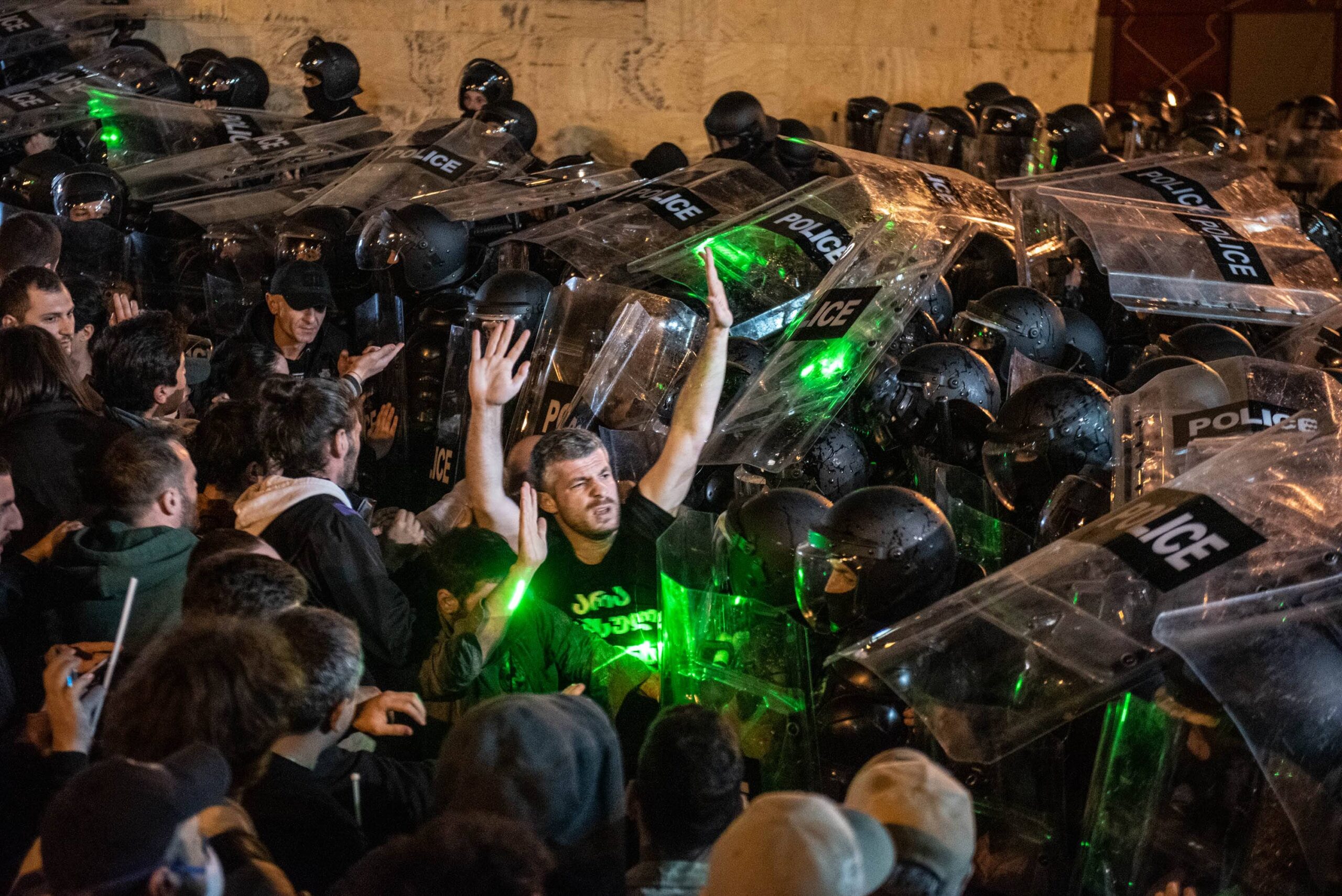
The European Union delegation in Georgia has stated that the country will lose €121 million ($130 million) in EU funding ‘as a result of democratic backsliding’.
On Tuesday, an EU representative explained that ‘annual allocations are not all spent in the same year, hence remaining funds from 2022 and 2023 directly benefiting the authorities will be lost’.
According to a post on Facebook by the European Commission’s Directorate-General for EU Neighbourhood and Enlargement, the money was ‘withheld/reallocated in June 2024 in reaction to backsliding on democratic standards, in particular following the adoption of the [foreign agent law], targeting Georgian civil society and media’.
The controversial foreign agent law labels any civil society or media organisation that receives at least 20% of its funding from abroad ‘organisations carrying out the interests of a foreign power’. Such organisations are subject to monitoring every six months, which lawyers have warned could include forcing them to hand over internal communications and confidential sources. Organisations that do not comply are subject to large fines.
The legislation was reintroduced by the ruling Georgian Dream party in April, followed by nearly two months of massive street protests during which riot police deployed water cannons, pepper spray, and tear gas as dispersal methods.

After the adoption of the foreign agent law, the EU and the US stopped funding certain projects because they believed that the country’s authorities had changed the course of European integration.
Georgian Dream, whose members were sanctioned by the US for ‘undermining democracy in Georgia’, has claimed otherwise.
EU Parliament’s critical resolution
On Wednesday, the European Parliament adopted a resolution on ‘democratic backsliding and threats to political pluralism in Georgia’ by a large majority, with 495 votes in favour and 73 against. The resolution calls on the European Commission to ‘assess’ Georgia’s fulfilment of the visa-free regime criteria and for EU member states ‘to impose immediate and targeted personal sanctions’ on the founder of Georgian Dream and current honorary chair of the party, billionaire Bidzina Ivanishvili, for ‘his role in the deterioration of the political process in Georgia’.
Among other topics, the resolution condemned the foreign agent law and the recently-passed LGBT propaganda law ‘on protection of family values and minors’. The text stated that the legislation was inconsistent with the values of the European Union, and contradicted Georgia’s ambitions to join the EU, damaged the country’s international reputation, and endangered its Euro-Atlantic integration. The document stated that until these laws are repealed, progress in Georgia-EU relations cannot be achieved.
Georgian government representatives immediately criticised the resolution, while members of the Georgian opposition deemed the resolution a ‘clear signal’ from the EU, with opposition Strategy Aghmashenebeli party leader Giorgi Vashadze stating that the EU had indicated that ‘if you want to become a member of the EU, get rid of Bidzina [Ivanishvili], get rid of the Georgian dream’.
Ruling party chair Irakli Gharibashvili, however, described the resolution as ‘another demonstration of brazen interference in the internal affairs of our country’.
‘In which country have you seen such rude, brazen interference in election processes, manipulation and attempts to influence the people, the voters, two weeks before elections?’ he told reporters on Wednesday.
The Prime Minister of Georgia, Irakli Kobakhidze, added on Wednesday that ‘the injustice of this resolution is very clear’ and that the ‘unjust document has no value for us’.
Kobakhidze also suggested that similar resolutions passed since the start of Russia’s full-scale invasion of Ukraine in 2022 were attributable to the ‘Global War Party’, a Georgian Dream conspiracy theory which claims that a secret cabal controls the West and seeks to sow war globally.
‘Here is the hand of the forces we call the Global War Party. It is obvious that certain forces cannot adapt to the fact that a second front was not opened in the country, the war did not take place, and this is a kind of last fight for these forces in order to manage to develop such a scenario. They are pinning their hopes on the parliamentary elections, and this discussion actually took place in the European Parliament for that reason’, he said.
Georgia’s parliamentary elections are scheduled for 26 October.









